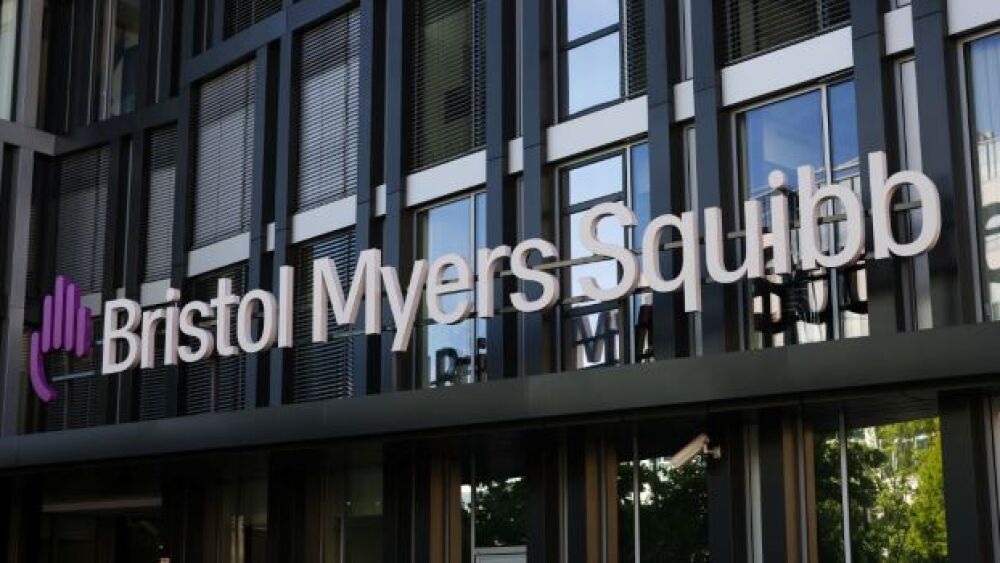BMS inked a collaboration agreement with Exscientia that can leverage AI to speed the discovery of drug candidates in therapeutic areas, including oncology and immunology.
Jeremy Moeller/Getty Images
Only a day after Bristol Myers Squibb signed a licensing deal with Agenus with an upside potential of $1.56 billion, BMS inked a collaboration agreement with Exscientia, an Artificial Intelligence (AI)-focused biopharma company, that could hit $1.2 billion.
The collaboration will leverage AI to speed the discovery of drug candidates in several therapeutic areas, including oncology and immunology. Under the terms of the deal, BMS will pay Exscientia $50 million upfront, up to $125 million in near to mid-term milestones, and various other milestones that could exceed $1.2 billion. Exscientia will also be eligible for tiered royalties on net sales of any commercial products that come out of the partnership.
This deal is an expansion of a collaboration that originated in 2019 between Exscientia and Celgene before BMS acquired Celgene. Exscientia will handle AI design and experimentation for drug discovery.
“We are proud that Bristol Myers Squibb wants to build on our work together with this expanded collaboration and, believe it speaks to the strength and promise of Exscientia’s AI technologies and drug discovery expertise,” said Andrew Hopkins, chief executive officer of Exscientia. “We’re excited to work with such an experienced collaborator as Bristol Myers Squibb to develop the best possible medicines for patients.”
Exscientia has extensive stable major partnerships in the industry, including Bayer, Sanofi and Dainippon Sumitomo. It has also worked with startup biotech companies as well as the Bill & Melinda Gates Foundation.
Its pipeline includes more than 20 partnered or wholly-owned drugs. Two have moved into clinical trials. Most recently, on April 8, the company announced that its first AI-designed molecule for immuno-oncology had entered Phase I testing. It is an A2a receptor antagonist developed for adults with advanced solid tumors. The drug was co-invented and developed via a Joint Venture between Exscientia and Evotec.
Exscientia recently closed on a Series D funding round worth $525 million. The round was led by Softbank.
The round was for $225 million but included access to an additional $300 million at the company’s discretion. Led by SoftBank Vision Fund 2, it was joined by previous round lead investors, Novo Holdings, and funds managed by Blackrock.
Other investors included Mubadala Investment Company, Farallon Capital, Casdin Capital, GT Healthcare Capital, Marshall Wace, Pivotal bioVenture Partners, Laurion Capital, Hongkou, and Bristol Myers Squibb.
Of today’s deal, Rupert Vessey, president of Research & Early Development at BMS, stated, “We have been pleased with Exscientia’s work in tackling a number of distinct projects for Bristol Myers Squibb. Exscientia’s application of AI technologies is proving capable of generating best-in-class molecules while also reducing discovery times. Rapid discovery of molecules that can enter the clinic in a timely manner could positively impact our work in discovering treatments for areas of unmet medical need.”
Yesterday’s announcement of the deal between BMS and Agenus focused on Agenus’ proprietary bispecific antibody program, AGEN1777, and a second target, which was not disclosed. AGEN1777 is being investigated in cancer models where checkpoint inhibitors against PD-1 or TIGIT monospecific antibodies by themselves have not proven effective.
It hopes to file for an Investigational New Drug (IND) application for the drug with the U.S.Food and Drug Administration (FDA) in the second quarter of this year. BMS plans to advance it for high priority tumor indications, including non-small cell lung cancer.





